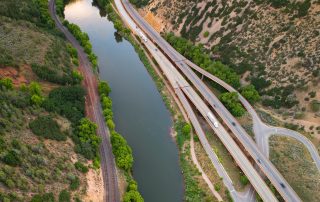MASTERS OPPORTUNITY: Using remote sensing to investigate drivers of change in complex social-ecological systems
Project background The Limpopo River Basin is a complex transboundary system that supports more than 18 million people across the riparian states of Botswana, Mozambique, South Africa, and Zimbabwe. Most of this population is rural and poor, and heavily dependent on subsistence agriculture. The basin is an important agricultural area, has extraordinary mineral resources, is exceptionally rich in biodiversity, supports a significant tourism industry, and contains major urban and industrial centres. The system comprises biophysical and human sub-systems and drivers, all of which interact to present a composite picture of vulnerability. As the Limpopo River Basin approaches water resources closure [...]


